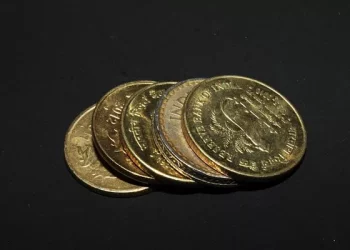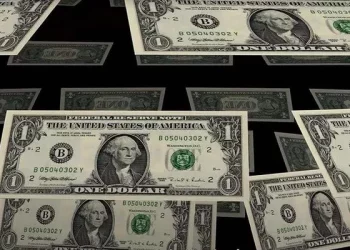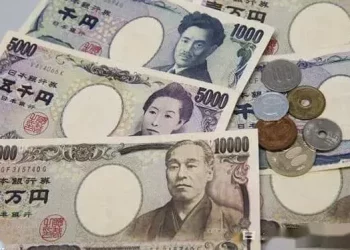The global foreign exchange (Forex) market is the largest and most liquid financial market in the world, where currencies from every nation are traded daily by governments, financial institutions, and individual investors. Currencies not only represent a country’s economic standing but also hold cultural significance and historical context, playing an essential role in trade and economic policy. Among the currencies frequently discussed in Forex markets are the South Korean won (KRW) and the Japanese yen (JPY). A common question arises: does Korea use won or yen? This article aims to answer this question by diving into the details of Korea’s currency, the significance of the won in global markets, its comparison with the yen, and factors that make the won a relevant currency in Forex trading.
1. Understanding the Korean Won: Korea’s National Currency
Korea, specifically South Korea (Republic of Korea), uses its national currency called the won. The currency code for the South Korean won is KRW, and its symbol is typically written as ₩. In North Korea, the official currency is also called the won, but it is entirely separate from South Korea’s won and is rarely traded or seen in global markets. For the purposes of this article, when we refer to the “won,” we are discussing the South Korean won, as it is the one used on the Forex market.
The history of the South Korean won dates back centuries, with its origin as a currency that has evolved through multiple regimes and changes in governance. Following the Korean War, the Korean won was reintroduced in 1962, replacing the Korean hwan and becoming the recognized currency of the modern Republic of Korea. Since then, it has undergone changes in valuation and structure, especially as South Korea’s economy rose to become one of the most advanced in Asia and the world.
2. Why the Confusion with the Japanese Yen?
The Japanese yen (JPY) and the South Korean won (KRW) are both prominent Asian currencies, and both Japan and South Korea are major economic players in the region. However, there are some key reasons why people might mistakenly think that Korea uses the yen:
Historical Ties: Japan occupied Korea from 1910 to 1945, and during this period, the Japanese yen circulated in Korea alongside the Korean yen, a variant currency created by Japan specifically for use in Korea. This historical connection between Korea and Japan’s currency can lead to confusion.
Regional Proximity: South Korea and Japan are neighbors, and their economies are highly interconnected. Both countries have robust economies, a strong presence in the technology and automotive industries, and are members of international economic organizations, leading some to assume they may share similarities in currency as well.
Forex Market Comparisons: The Japanese yen (JPY) is one of the most traded currencies in the world and is often paired with the won in Forex trading strategies. Because of this close association in financial markets, it’s easy for newcomers to confuse the two currencies.
However, it is crucial to note that South Korea is independent in its currency policies and has full control over the issuance and regulation of the South Korean won through its central bank, the Bank of Korea.
3. Key Characteristics of the South Korean Won (KRW)
The South Korean won has unique characteristics that set it apart from the Japanese yen and other currencies in Asia. Understanding these characteristics can provide insights into its behavior in Forex markets and its appeal as a currency for trade and investment.
Exchange Rate and Value
The won has traditionally had a lower value relative to the U.S. dollar (USD) and the Japanese yen. As of recent years, 1 USD is equivalent to approximately 1,200 KRW, though exchange rates fluctuate. This lower valuation compared to major currencies is partly due to South Korea’s export-driven economy, where a weaker currency makes South Korean goods more competitive in international markets.
Currency Symbol and Denominations
The South Korean won is denoted by the symbol ₩ and comes in various denominations. Coins are issued in values of ₩10, ₩50, ₩100, and ₩500, while banknotes come in ₩1,000, ₩5,000, ₩10,000, and ₩50,000 denominations. The high numerical values of the won are another reason for the misconception, as it can be compared to the yen, which also uses relatively large numbers for everyday transactions.
Controlled Floating System
The won operates under a managed floating exchange rate system. While the value of the won is generally determined by the foreign exchange market, the Bank of Korea intervenes when necessary to stabilize the currency’s value. This flexibility helps South Korea address potential economic volatility and currency fluctuations, especially given its dependence on exports.
Economic Ties to Major Currencies
Due to its trade-heavy economy, the South Korean won is often tied to the performance of other major currencies, especially the U.S. dollar and the Chinese yuan. South Korea’s largest trading partners are the United States and China, and thus, the value of the won often fluctuates in line with the demand for South Korean exports in these countries.
4. The Role of the Won in the Forex Market
South Korea is the fourth-largest economy in Asia, making the won an important currency in the global Forex market. While not as widely traded as the Japanese yen, the won still plays a significant role in regional and emerging market currency trading. It is often used in Forex trading as a means of exposure to the South Korean economy or as a hedge against other Asian currencies.
Liquidity and Volatility
Compared to the yen, the won is less liquid in the Forex market. The Japanese yen is considered one of the “big four” currencies (alongside USD, EUR, and GBP) and is a popular choice for safe-haven trades. The won, on the other hand, is more susceptible to volatility, often driven by South Korea’s economic data releases, geopolitical tensions with North Korea, and global demand for exports like semiconductors, automobiles, and consumer electronics.
Popular Trading Pairs
The most commonly traded pairs involving the South Korean won are USD/KRW and JPY/KRW. The USD/KRW pair is particularly popular among traders who wish to gain exposure to the South Korean economy or speculate on changes in trade relations between South Korea and the U.S. The JPY/KRW pair is also notable, as it reflects the economic dynamics between two major Asian economies.
Importance in Emerging Markets
The won is also significant in emerging market currency trading. Given South Korea’s status as a developed market with emerging market dynamics, the won can provide an indicator for investor sentiment in Asian markets. The won often serves as a benchmark for the performance of other currencies in the region, especially those of countries with export-driven economies.
5. Comparing the Won with the Yen: Key Differences for Forex Traders
Though the won and the yen are often mentioned in the same context, they differ in several key aspects, making each unique in its role within the Forex market. Here’s how they compare:
Global Influence: The Japanese yen is the third most traded currency in the world, whereas the won is not as globally influential. As a result, the yen is often considered a global safe-haven currency, while the won is more regional.
Stability: The yen is generally more stable than the won due to Japan’s strong monetary policies and its global safe-haven status. The won, meanwhile, is subject to greater fluctuations, largely driven by South Korea’s reliance on exports and regional geopolitical factors.
Interest Rate Policy: South Korea’s interest rates are typically higher than Japan’s, as the Bank of Japan has kept interest rates near zero or even negative for an extended period to stimulate its economy. This can make the won more attractive for carry trades, where investors borrow in a currency with a low interest rate (such as the yen) and invest in one with a higher interest rate (like the won) for potential yield.
Geopolitical Sensitivity: The won is more susceptible to geopolitical risks in East Asia, particularly with North Korea. Tensions or incidents involving North Korea can lead to sharp declines in the won, while the yen often appreciates during such events as investors seek a safe-haven currency.
6. Investing in the South Korean Won: Risks and Opportunities
For Forex traders, the won presents unique opportunities and risks. The currency can serve as a gateway to the South Korean economy, which is known for its technology sector, advanced infrastructure, and high levels of foreign investment. However, investors should also consider potential risks:
Economic Sensitivity: The won is sensitive to changes in South Korea’s economic indicators, including GDP growth, inflation, and industrial production. Additionally, South Korea’s dependence on exports means that shifts in global demand for technology, automotive, and heavy machinery can have significant effects on the won.
Political and Geopolitical Risks: The Korean Peninsula is known for its geopolitical challenges, especially in relation to North Korea. Any sign of tension or conflict in the region can cause fluctuations in the won, making it a more volatile currency for investors.
Regulatory Intervention: The Bank of Korea actively monitors the won and may intervene in currency markets if it sees substantial risks to the stability of the currency or the economy. Such interventions can make it difficult for traders to predict the currency’s movements based purely on technical analysis.
Conclusion
To clarify, South Korea uses the won (KRW), not the yen, as its national currency. While both South Korea and Japan are significant economic players in Asia, each country maintains its own currency with distinct roles in the Forex market. The South Korean won is a dynamic and important currency that reflects the economic performance of one of the most innovative and competitive nations in the world. Understanding its characteristics, market behavior, and economic context is essential for anyone interested in trading the won or analyzing the broader dynamics of the Asian financial markets.
While the Japanese yen may be more widely traded globally, the won remains crucial for regional trade and investment strategies. It offers Forex traders opportunities and challenges, particularly as they navigate the shifting tides of South Korea’s economic indicators and geopolitical events. Whether you are an investor, trader, or financial analyst, understanding the won and its relationship to other currencies like the yen is essential to making informed decisions in today’s global Forex market.
Related Topics:

























